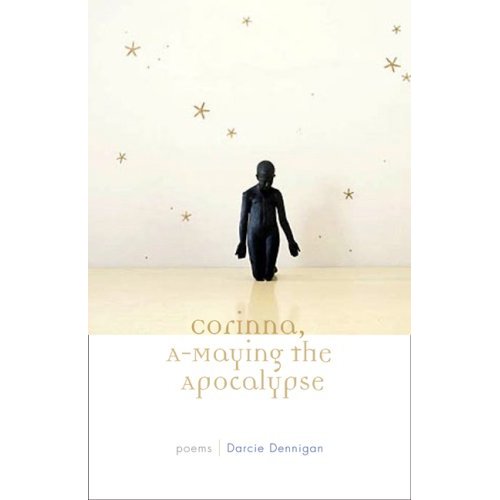11 Questions for Stephanie Johnson
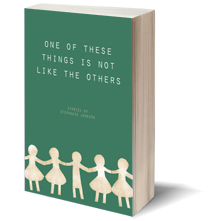
How do you make these graphics of the book cover standing up, showing fake pages?
I sent 11 questions to Stephanie Johnson about her book, One of These Things Is Not Like the Others, just out from Keyhole, and she wrote back thanking me for my close reading. But such thanks are unnecessary; the book demands and rewards it. If you don’t read One of These Things with a keen eye, it’s possible to miss out on some of the best writing in a year of great writing. I rank Johnson’s book with two of my other favorites of 2009, AM/PM by Amelia Gray and Big World from Mary Miller. It’s not because they’re all women that I make the comparison, or because of the flash sensibilities, but because they all share a profoundly affecting emotional core that, geyserlike, does most of its work below the surface.
Speaking of below the surface, Stephanie Johnson’s answers to my eleven questions are below the fold. READ MORE >
A Book That Books What A Book Would Do
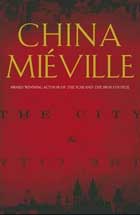 Does anybody know anything about this book, The City and the City? I heard it discussed on Morning Edition today and had one of those driveway moments or whatever. It sounds flabbergasting. Apparently, it’s a detective story that takes place in a city that has another city right on top of it — but not, like, above it — both cities occupy the same space. It was funny to hear Robert Siegel trying to wrap his mind around it.
Does anybody know anything about this book, The City and the City? I heard it discussed on Morning Edition today and had one of those driveway moments or whatever. It sounds flabbergasting. Apparently, it’s a detective story that takes place in a city that has another city right on top of it — but not, like, above it — both cities occupy the same space. It was funny to hear Robert Siegel trying to wrap his mind around it.
I don’t know more than that, but here’s a good review at The Guardian. I’ve never read anything by China Miéville, but this concept has me intrigued enough to maybe buy his book from wherever people buy these books from and bring it on the road with me next week.
The Interview Awards: Rivka Galchen
 Interviews with novelists seem to always run the risk of being completely inane. (So…. how’d you come up with the plot of your book? Your protagonist is craa-aazy! How ’bout that? ) A lot of interviews have the same confused, polite tone. If you haven’t read the book they’re talking about then the interview might not make any sense but if you have read it, the interview might be boring. Either that or the writer ends up just talking about their “process” (3 hours every day, only after midnight, in the bathtub… blahblahblah…) which can be interesting sometimes but is often dull.
Interviews with novelists seem to always run the risk of being completely inane. (So…. how’d you come up with the plot of your book? Your protagonist is craa-aazy! How ’bout that? ) A lot of interviews have the same confused, polite tone. If you haven’t read the book they’re talking about then the interview might not make any sense but if you have read it, the interview might be boring. Either that or the writer ends up just talking about their “process” (3 hours every day, only after midnight, in the bathtub… blahblahblah…) which can be interesting sometimes but is often dull.
Somehow, though, I like reading these interviews despite having a lot to complain about. Rivka Galchen gives particularly good ones so I’ve decided to give her three highly arbitrary HTMLgiant awards based on one interview in The L Magazine.
Best alternative to just saying “Um, No.”:
The L: The omnipresent character Tzvi Gal-Chen is named after your father. Is there significance behind the names of any of the other characters?
RG: If you take all the letters of the names of the different characters, shuffle them, then transpose their value an X increment, it reveals the terrifying and silent name of the God of our divine disorder.
READ MORE >
Rob McLennan interviews Ken Sparling

Excellent 12 or 20 question interview with Ken Sparling over at Rob McLennan’s blog, about Sparling’s next book, Lish, editing, process, etc. “I haven’t met many editors who can make themselves essential. The only way to do that is to get carnal with the work you’re editing, fuck with it, cross things out, move things around, maybe even add things in.”
Today at Coop’s Place: It’s MIKE YOUNG Day!
I Remember
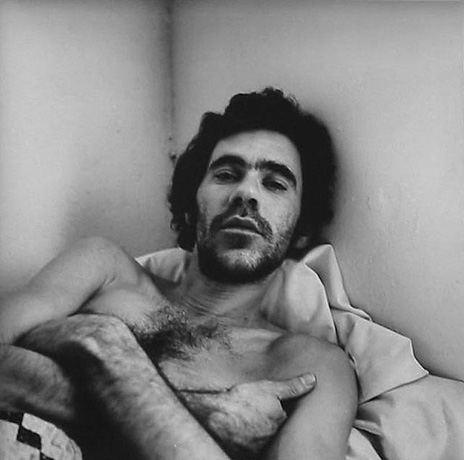
Joe Brainard‘s I Remember is seriously keeping me from punching my own head in today. Refreshing in a way I’ve needed for a while. Calm, quiet, funny, right. People have been ripping this guy off for years.
I remember my first erections. I thought I had some terrible disease or something.
I remember the only time I ever saw my mother cry. I was eating apricot pie.
I remember when my father would say “Keep your hands out from under the covers” as he said goodnight. But he said it in a nice way.
I remember when I thought that if you did anything bad, policemen would put you in jail.
Devine Interview
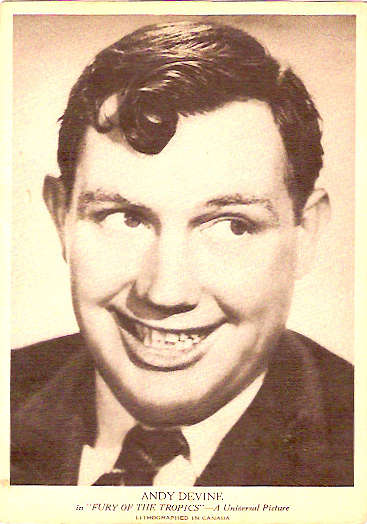
An English sentence can expand and expand and it can do it with conjunctions (or clauses) — also qualifiers like adjectives and adverbs — but a greatly expanded English sentence is not so different from an English sentence that hasn’t been greatly expanded.
An Interview with Andy Devine
by
Josh Maday
(in the newest installment of elimae)
Home Alone by Raymond Carver
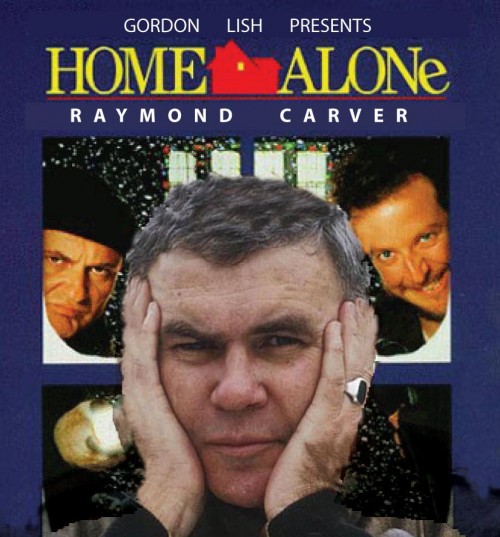
I was standing in front of the living room window, my reflection half transparent, drinking a gin and tonic. My family had left me alone for the holidays; I just didn’t feel up for the motions and devotions necessary to complete the season. That was the thing with years: there were always more. My face through the window seemed lakelike; each squint, as I tried to make myself out, a little ripple moving outwards towards the world at large. The failed hail of snow had fallen. Two men knocked on the door and I started to run away.
That was mine, yah, sorry. Now it’s your turn to give it a go in the comments section — nothing too long, just a couple of sentences. Others are welcome to critique entrees; why is it or isn’t it Carver? Let’s try to find out what it was he* did, and how he* did it. (*Yah, Lish, I know.) For me, Carver is romantic without being romantic. It’s reticent emotional hyperbole, which is like, uh, really difficult. Good luck!
Interview with Liza Monroy
LM: I am enormously influenced by place. As an only child with a single mom who moved around all the time, I got to spend a lot of time alone growing up in foreign countries and on weekends and holidays all Mom wanted to do was travel, so that was a huge thing for me, taking in places. READ MORE >

